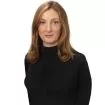Kirtsaeng v. John Wiley & Sons, Inc. will be one of those rare cases heard by the Supreme Court more than once.
Supap Kirtsaeng was a Thai graduate student studying in the U.S. While in school, he sold foreign edition English-language textbooks to fellow students that his friends and family had purchased in Thai bookstores. Because many publishers including John Wiley & Sons sold textbooks containing virtually identical content at high prices in the U.S. and low prices abroad, Kirtsaeng was able to reap a profit from his re-sales.
In 2008, John Wiley & Sons sued, alleging copyright infringement. It won at the district court and in the Second Circuit, but in 2013, the Supreme Court ruled for Kirtsaeng, holding that the first sale doctrine, which explicitly allows the resale and distribution of lawfully made copies on the secondhand market without running afoul of copyright law, applies to works first distributed overseas. Kirtsaeng v. John Wiley & Sons, Inc., 133 S. Ct. 1351 (2013). The decision was a momentous one, settling a hotly debated question that had ended in a 4-4 tie only three years earlier, in Costco Wholesale Corp. v. Omega, S.A., 562 U.S. 40 (2010). After the Supreme Court's decision, Kirtsaeng's attorneys asked the District Court for attorney fees. Section 505 of the Copyright Act allows judges to award attorney fees to the prevailing party at their discretion. The prospect of attorney fees can influence decisions to defend or settle a case, since attorney fees through trial and appeals can often exceed potential damages.
Past Supreme Court precedent on the topic is vague. In Fogerty v. Fantasy, Inc., 510 U.S. 517 (1994), the Supreme Court stated that copyright defendants are equally eligible for attorney fees as copyright plaintiffs, and should be treated alike. The Fogerty court emphasized that requiring prevailing defendants to show that the plaintiffs' claim was frivolous or in bad faith — essentially treating an award of attorney fees to defendants as a punishment — was too narrow a view of the purposes of the Copyright Act and the attorney fees provision. Instead, the "primary objective of copyright is... to promote the Progress of Science and useful Arts," and "defendants who seek to advance a variety of meritorious copyright defenses should be encouraged to litigate them to the same extent that plaintiffs are encouraged to litigate meritorious claims of infringement."
Nevertheless, any award of fees is still at the discretion of the district court. In a footnote, the Supreme Court accepted, without explicitly endorsing, the use of non-exclusive factors such as "frivolousness, motivation, objective unreasonableness (both in the factual and in the legal components of the case) and the need in particular circumstances to advance considerations of compensation and deterrence.... [s]o long as such factors are faithful to the purposes of the Copyright Act and are applied to prevailing plaintiffs and defendants in an evenhanded manner."
The various Circuits have applied the Fogerty factors in varying ways, setting the stage for Kirtsaeng II. At one end, the Seventh Circuit applies a presumption in favor of attorney fees to prevailing parties in all cases. On the other end, the Second Circuit emphasizes that the objective unreasonableness factor should receive substantial weight such that the other factors must outweigh it for a fees award to be issued. The rest of the Circuits lie somewhere in between, with some applying the Fogerty factors, either primarily or nonexclusively, some stating that awards should be "routine," some emphasizing the question of whether fees would further the interests of the Copyright Act, or some combination, though all at the discretion of the district court.
The district court denied Kirtsaeng his fees, finding that the publisher's suit was not "objectively unreasonable." It weighed the novelty of the issues against Kirtsaeng because the plaintiff also took a risk in pressing an unsettled theory. It discounted consideration of compensation because Kirtsaeng had pro bono representation at the Supreme Court. It also held that Kirtsaeng's degree of success and the financial disparity between the parties were issues relevant to the amount that would constitute reasonable fees, not whether fees should be awarded at all. The Second Circuit affirmed, though it disapproved of the district court's discounting of potential compensation for pro bono versus paid representation.
Kirtsaeng has appealed to the Supreme Court, arguing that the Second Circuit's focus on objective unreasonableness improperly mirrors the "exceptional case" standard of patent and trademark law because, unlike the patent and trademark statutes, there is no exceptional case requirement under the Copyright Act. Furthermore, he argued that the Second Circuit applies its standard in an uneven manner by favoring copyright plaintiffs unless their claims are unreasonable, under the theory that the imposition of a fee award against a copyright holder with an objectively reasonable litigation position will generally not promote the purposes of the Copyright Act, but awarding fees against defendants who employ reasonable defenses to deter violations. Essentially, Kirtsaeng's critique is the Second Circuit improperly views the purpose of the Copyright Act as stopping infringement instead of promoting the progress of science and useful arts, as the constitutional preamble states.
In January, the Supreme Court granted Kirtsaeng's petition for certiorari a second time. Briefing on the merits has not yet begun, so a decision will likely not come until the fall, but copyright practitioners, litigants, and potential litigants will be watching closely.
The content of this article is intended to provide a general guide to the subject matter. Specialist advice should be sought about your specific circumstances.

